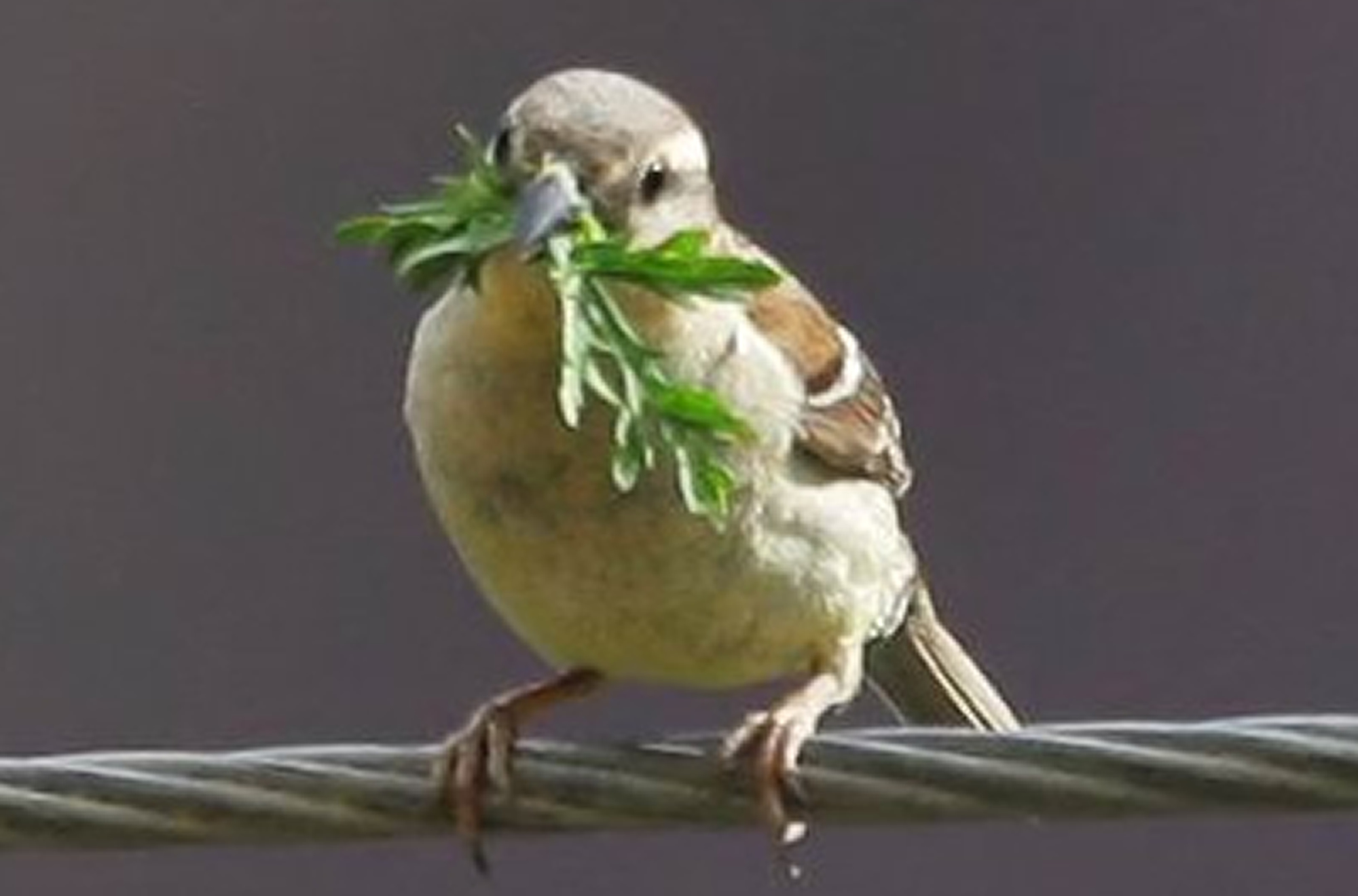Media release
From:
An international study has found sparrows, like humans, use medicinal herbs to defend against parasites and improve the condition of their offspring.
Researchers from Griffith University, Hainan Normal University and Université Paris-Saclay discovered the russet sparrow incorporate China’s aromatic wormwood (Artemisia verlotorum) leaves into their nests as a form of preventative medicine.
“The phytochemical compounds within wormwood leaves reduced infestation of the nest parasites otherwise found there, which results in the production of healthier chicks,” says Dr William Feeney from the Environmental Futures Research Institute.
The use of medicines is a complex behaviour that has often been considered uniquely human. While several birds have been suspected of using herbal medicines in a manner similar to humans, it's proven difficult to verify.
“The Dragon Boat Festival is one of China’s largest national festivals, where people ritualistically hang wormwood from their doors and bath their children in wormwood infused water with the customary belief that it confers protection against ill health,” Dr Feeney said.
The medicinal qualities of wormwood are well known, with the identification of anti-parasite compounds in the plant.
“We observed that around the same time as the Dragon Boat Festival russet sparrows, a common local bird, also incorporate fresh wormwood into its nest, suggesting that it may serve a similar function for both humans and sparrows,” Dr Feeney explained.
“Using a series of behavioural experiments, we show that the birds actively seek out nest locations close to the available wormwood and resupply established nests with fresh wormwood leaves using gathered based solely on the leaves smell.
“The nests containing wormwood leaves had lower parasite loads. By decreasing the number of parasites such as mites, the sparrows that add more wormwood leaves to their nest produce heavier and healthier chicks.
“So our results indicate that russet sparrows, like humans, use wormwood as a preventative herbal medicine to protect their offspring against ill health. One has to wonder who is mimicking who?”




 Australia; QLD
Australia; QLD


